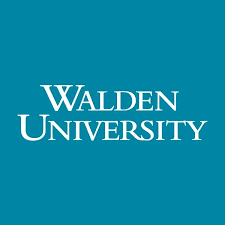
Digital Object Identifier
10.18870/hlrc.v13i1.1396
ORCID
Yusuke SAKURAI, 0000-0003-1150-3132
Abstract
Objectives: Little is known about how international functions of higher education, such as exchange programmes, can be resumed during recovery from a disruptive global crisis, such as COVID-19. We collected the opinions of administrators of international exchange programmes regarding their plans to resume their exchange programmes in the recovery phase and identified variations in the responses concerning institution type (public vs. private) and the presence or absence of a medical school.
Method: We used multiple-choice survey questions in our study, resulting in 180 valid responses. We examined overall patterns using descriptive statistics and institutional uniqueness using Fisher’s exact test.
Results: Governing organisations and domestic university networks are expected to initiate the resumption of student exchange programmes. Respondents indicate that they would rely on infection prevention experts at their institutions as sources of information for their decision-making. Public universities would rely more extensively on their staff’s opinions whilst private universities would consult with external experts. Universities with a medical school indicated a greater likelihood of referring to the opinions of experts at their institutions.
Implication for Theory and/or Practice: Higher education systems vary across nations. However, extant studies have shown some shared features, and the findings may have implications for higher education institutions internationally. Policy incentives and support may encourage public universities to participate in the global recovery of international education. During global public health infectious crises, institutions without a medical school may require more government support.
Conclusions: Institutional variations should be considered to effectively encourage universities to adapt to changing dynamics in the recovery of international education.
Method: The study used multiple-choice survey questions, resulting in 180 valid responses. The study examined overall patterns using descriptive statistics and institutional uniqueness using Fisher's exact test.
Results: Governing organisations and domestic university networks are expected to initiate the resumption of student exchange. Respondents indicate that they would rely on infection prevention experts at their institutions as sources of information for their decision-making. Public universities would rely more extensively on their staff’s opinions whilst private universities would consult with external experts. Universities with a medical school indicated a greater likelihood of referring to the opinions of experts at their institutions.
Implication for Theory and/or Practice: The higher education systems vary across nations. However, extant studies have shown some shared features, and the findings may have implications for higher education institutions internationally. Policy incentives and support may encourage public universities to participate in the global recovery of international education. During global public health infectious crises, institutions without a medical school may require more government support.
Conclusions: Institutional variations should be considered to effectively encourage universities to adapt to changing dynamics in the recovery of international education.
Recommended Citation
Sakurai, Y.,
Ishikura, Y.,
Nakano, R.,
Nabeshima, Y.,
Sengoku, Y.,
Okada, A.,
&
Kondo, S.
(2023).
University Administrators’ Visions for the Recovery of International Student Exchange in a Post–COVID-19 World.
Higher Learning Research Communications, 13 (1).
DOI:10.18870/hlrc.v13i1.1396
Included in
Educational Leadership Commons, Higher Education Commons, Higher Education Administration Commons, International and Comparative Education Commons






